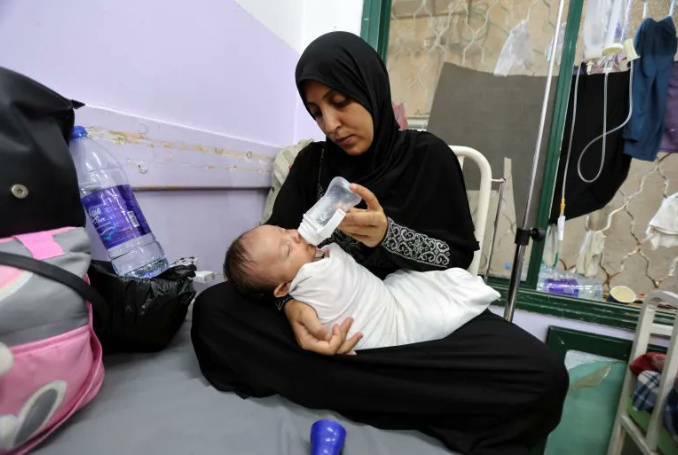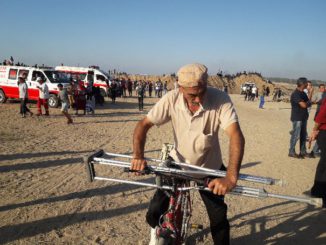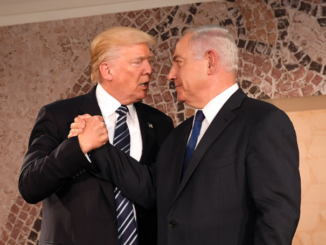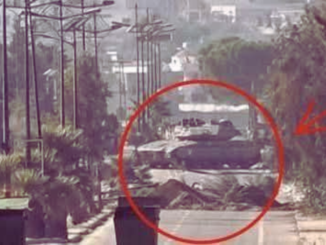
The polio vaccination campaign for children under 10 will begin in Gaza on Sunday and will last three days in each zone.
The World Health Organization (WHO) has said that the time agreed on for a polio vaccination campaign in Gaza is “unlikely to be enough” to achieve adequate coverage due to amongst others; the security situation in the enclave.
“Due to insecurity, damage to roads and infrastructure, and population movement and displacement, three days in each area is unlikely to be enough to achieve adequate coverage,” Tedros Adhanom Ghebreyesus told a press briefing on Friday.
The polio vaccination campaign for children under 10 will begin in Gaza on Sunday and will last three days in each zone: central, south and north of Gaza – where humanitarian pauses will take place during the distribution.
“Our aim is to reach at least 90% vaccination coverage during each round of the campaign to stop the current outbreak and prevent the international spread of polio, said Ghebreyusus.
Protection for Teams
The vaccination coverage will be monitored throughout the campaign, he added, “and it has been agreed that vaccination will be extended by one day wherever necessary.”
The WHO has trained more than 2180 health workers and community outreach workers to provide vaccination and inform communities about the campaign.
He stressed that the vaccination teams “must be protected and allowed to conduct the campaigns safely,” and urged all parties to ensure their protection, as well as that of health facilities and children.
“Humanitarian pauses are welcome, but ultimately, the only solution to safeguard the health of the children of Gaza is a ceasefire,” the WHO chief said.
Warning from HRW
Human Rights Watch (HRW) has warned that Israeli military attacks on healthcare infrastructure and water supplies as well as ongoing aid obstruction were contributing to a potentially catastrophic polio outbreak in Gaza.
“If the Israeli government continues to block urgent aid and destroy water and waste management infrastructure, it will facilitate the spread of a disease that has been nearly eradicated globally,” said Julia Bleckner, senior health and human rights researcher at HRW on Monday.
“Israel’s partners should press the government to lift the blockade immediately and ensure unfettered humanitarian access in Gaza to enable the timely distribution of vaccines to contain the unfolding polio outbreak,” Bleckner added.
The Palestinian Ministry of Health declared Gaza a polio epidemic zone at the end of July, and on August 16 confirmed the first case of polio in a 10-month-old child.
On August 23, the WHO confirmed that the baby had developed paralysis in one leg, after contracting the Type 2 polio virus, the first such case in the territory in 25 years.
Ongoing Genocide
Flouting a UN Security Council resolution demanding an immediate ceasefire, Israel has faced international condemnation amid its continued brutal offensive on Gaza.
Currently on trial before the International Court of Justice for genocide against Palestinians, Israel has been waging a devastating war on Gaza since October 7.
According to Gaza’s Ministry of Health, 40,602 Palestinians have been killed, and 93,855 wounded. Moreover, at least 11,000 people are unaccounted for, presumed dead under the rubble of their homes throughout the Strip.
Israel says that 1,200 soldiers and civilians were killed during the Al-Aqsa Flood Operation on October 7. Israeli media published reports suggesting that many Israelis were killed on that day by ‘friendly fire’.
Palestinian and international organizations say that the majority of those killed and wounded are women and children.
The Israeli war has resulted in an acute famine, mostly in northern Gaza, resulting in the death of many Palestinians, mostly children.
The Israeli aggression has also resulted in the forceful displacement of nearly two million people from all over the Gaza Strip, with the vast majority of the displaced forced into the densely crowded southern city of Rafah near the border with Egypt – in what has become Palestine’s largest mass exodus since the 1948 Nakba.
Later in the war, hundreds of thousands of Palestinians began moving from the south to central Gaza in a constant search for safety.
(PC, Anadolu)








